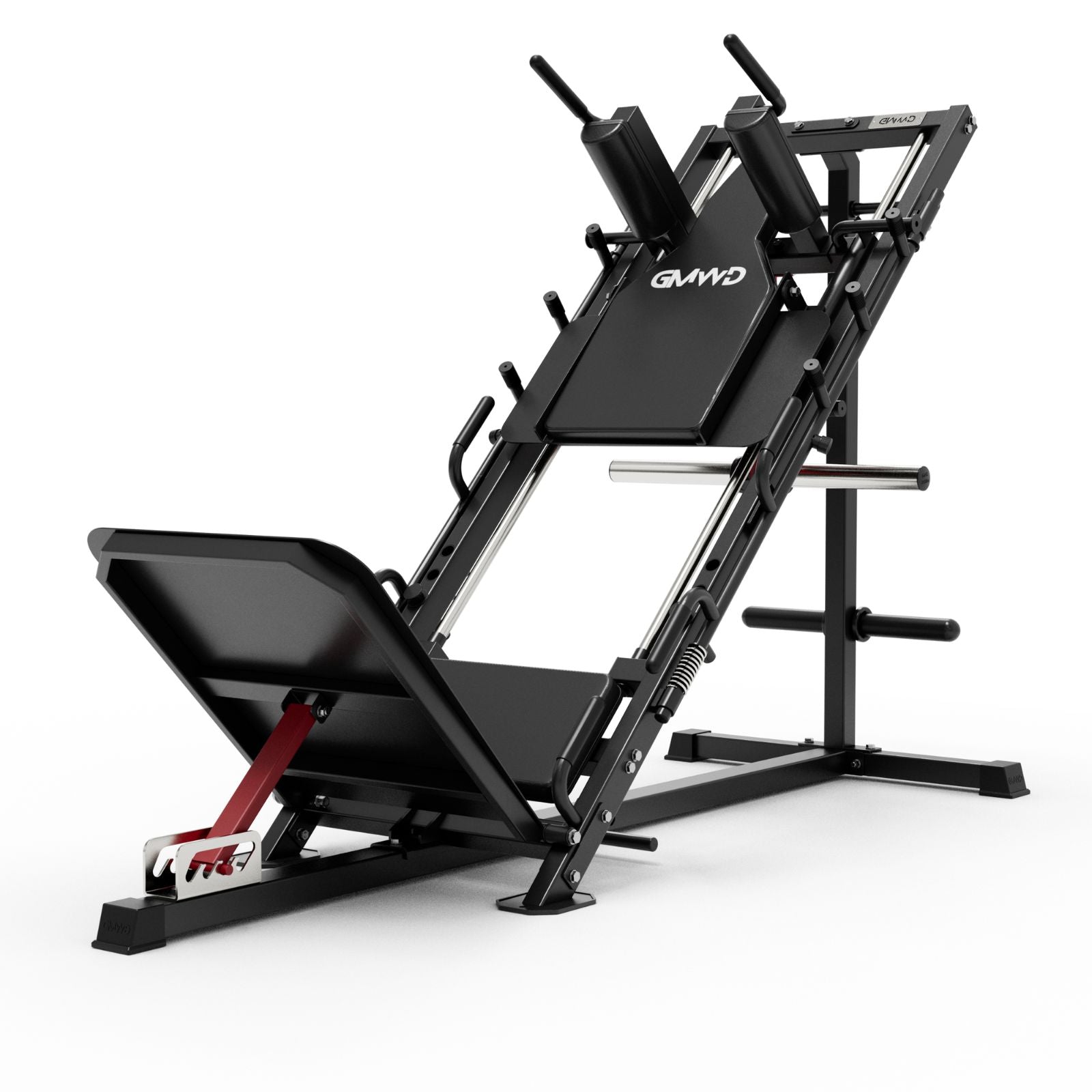A functional trainer workout is one of the best ways to develop strength, improve mobility, and enhance overall fitness. The functional trainer machine provides a versatile and effective workout by allowing users to perform a variety of functional trainer exercises targeting multiple muscle groups. Unlike traditional weightlifting machines, this equipment utilizes a cable pulley system, promoting natural movement patterns.
In this guide, we’ll cover the best functional trainer machine exercises, provide a structured functional trainer workout routine, and discuss the benefits of functional trainer cable machine exercises. Whether you're a beginner or an advanced lifter, this article will help you maximize your workout potential.
What is a Functional Trainer Machine?
A functional trainer machine is a versatile piece of fitness equipment featuring adjustable pulleys and a weight stack. It allows users to perform a variety of functional trainer exercises, mimicking real-world movements and engaging multiple muscle groups simultaneously.
Benefits of Using a Functional Trainer
1. Versatility
The functional trainer machine can be used for upper body, lower body, and core workouts, making it ideal for total-body training.
2. Safety and Control
Unlike free weights, the functional trainer cable machine exercises provide controlled resistance, reducing the risk of injury.
3. Improved Functional Strength
These workouts enhance strength in movements used in everyday activities and sports.
4. Accommodates All Fitness Levels
Whether you're a beginner or a seasoned athlete, the functional trainer workout routine can be adjusted to your skill level.
Key Features of a Functional Trainer
- Adjustable Pulleys for a wide range of motion
- Weight Stack System for controlled resistance
- Multiple Attachments like handles, ropes, and bars
- Compact Design ideal for home and gym use
How to Use a Functional Trainer Safely
- Always warm up before starting your functional trainer exercises.
- Adjust the pulleys to match your height and workout needs.
- Maintain proper form to avoid strain or injury.
- Start with light weights and gradually increase resistance.
Best Functional Trainer Exercises for Beginners
If you're new to functional trainer machine exercises, start with these fundamental moves:
- Chest Press – Strengthens the chest and shoulders
- Lat Pulldown – Targets the upper back and biceps
- Squats with Cables – Engages the legs and glutes
- Bicep Curls – Develops arm strength
- Tricep Pushdowns – Isolates the triceps
Advanced Functional Trainer Machine Exercises
For those looking to challenge themselves, try:
- Single-Arm Row – Builds unilateral strength
- Woodchopper Exercise – Enhances core rotation
- Reverse Lunge with Cable Row – Engages the back, legs, and core
- Pallof Press – Strengthens core stability
- Overhead Shoulder Press – Works the shoulders and upper back
Full-Body Functional Trainer Workout Routine
Perform each exercise for 3 sets of 12-15 reps:
- Squats with Cables
- Chest Press
- Lat Pulldown
- Woodchopper
- Single-Arm Row
- Pallof Press
- Triceps Pushdown
Upper Body Functional Trainer Machine Workouts
This workout focuses on your chest, shoulders, back, and arms:
- Chest Flys – Strengthens the pectoral muscles
- Lateral Raises – Develops shoulder definition
- Seated Row – Engages the lats and traps
- Bicep Curl with Rope Attachment – Improves arm strength
Lower Body Functional Trainer Cable Machine Exercises
For stronger legs and glutes, try these moves:
- Cable Squats – Works the quads and glutes
- Cable Deadlifts – Strengthens hamstrings and lower back
- Kickbacks – Targets the glutes
- Side Leg Lifts – Improves hip mobility
Core and Abs Functional Trainer Exercises
- Cable Crunches – Strengthens the abs
- Russian Twists – Engages the obliques
- Plank Rows – Builds core stability
- Hanging Leg Raises with Cables – Improves lower abdominal strength
Functional Trainer Workouts for Athletes
Athletes benefit from explosive movements like:
- Cable Rotational Press
- Lateral Cable Jumps
- Sprint Resistance Training
Functional Trainer Workouts for Rehabilitation
Physical therapists use functional trainer machine exercises for recovery:
- Assisted Shoulder Rehab Movements
- Knee Stability Exercises
- Low-Impact Core Work
Functional Trainer vs. Traditional Weight Machines
| Feature | Functional Trainer | Traditional Machine |
|---|---|---|
| Range of Motion | High | Limited |
| Versatility | Excellent | Moderate |
| Safety | High | Medium |
| Space Required | Moderate | Large |
Tips for Maximizing Your Functional Trainer Workouts
- Keep your core engaged throughout exercises.
- Use slow, controlled movements for better muscle activation.
- Experiment with different grips and attachments.
- Stay consistent and track progress.
Frequently Asked Questions
1. Can beginners use a functional trainer machine?
Yes! It’s beginner-friendly and adjustable for all fitness levels.
2. How often should I do a functional trainer workout routine?
Aim for 3-5 times per week, depending on your fitness goals.
3. Are functional trainer cable machine exercises good for weight loss?
Yes! They help build muscle and burn calories, aiding in weight loss.
4. Can I do a full-body workout with a functional trainer?
Absolutely! It’s one of the best machines for total-body training.
5. What attachments should I use for different exercises?
Handles for presses, ropes for triceps, and bars for rows and squats.
6. Is a functional trainer better than free weights?
It depends on your goals. Functional trainers offer more controlled resistance, while free weights improve stabilizer muscles.
Conclusion
A functional trainer workout is one of the most effective ways to build strength, improve flexibility, and enhance functional fitness. Whether you're looking to gain muscle, improve athletic performance, or rehabilitate an injury, functional trainer machine workouts provide a safe and efficient way to reach your fitness goals.










































Leave a comment
This site is protected by hCaptcha and the hCaptcha Privacy Policy and Terms of Service apply.